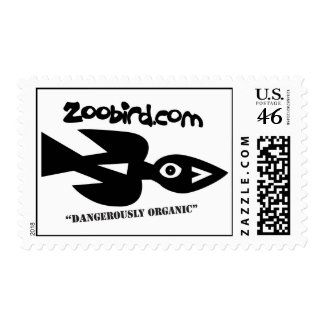Dangerously organic!

Ron Chandler founded the CIFAE. I thought we'd enjoy a discussion group here in Caring Zoobirds to learn more about it. Ron's about to devote 8 weeks of his life to the CIFAE starting November 18th, 2008. This journey will take him to India and Nepal, among other places.
About Conservation Initiative for the Asian Elephant, Inc.
Vision
A just, equitable and peaceful society in which elephant and human have the resources necessary to thrive.
Mission
Conservation Initiative for the Asian Elephant, Inc. (CIFAE) shall identify the issues of critical importance to the long-term survival and sustainability of the Asian elephant and the indigenous peoples sharing its habitat. We shall assist with the design, implementation and maintenance of projects and programs that resolve these critical issues.
programs
EDUCATION and OUTREACH
Education and outreach programs provide instruction in general ecology, conservation and elephant natural history, as well as basic education. Through the CIFAE Education and Outreach Program, the peoples sharing elephant habitats are provided information and assistance as to how they can live more compatibly with the elephant, and to develop a sense of appreciation and pride for it. This program also informs people in elephant habitat of the other CIFAE programs, such as Human-Elephant Conflict Resolution and Sustainable Economic Development, that are available for helping them sustainably improve their ambient quality of life while doing the same for the elephant.
HUMAN-ELEPHANT CONFLICT RESOLUTION
Currently to be an Asian elephant in the wild is one of the toughest challenges that any wild animal can face. Their natural habitat is being destroyed at an alarming rate for agricultural land; paper; construction materials; ore; oil palm for cosmetics, chocolates and biodiesel stock, and sprawling human habitation. They are being poisoned and shot while eating crops that have been planted in their habitats and corridors, and are struck by trains that incise their homes. Through the Human-Elephant Conflict Resolution Program, CIFAE works with local organizations and agencies to determine effective, culturally-respectful solutions to myriad issues that are creating dangerous and harmful human-elephant encounters.
ANTI-POACHING
In many areas of southeast Asia, the survival of the elephant is due most to the efforts of a relatively few courageous villagers, volunteers and rangers (“Life Guards”) who endure long days and the rigors of the wild to patrol elephant, rhino and tiger habitats in attempts to ward off and-or apprehend poachers. They risk there lives daily, work long shifts in tattered clothes, and have typically have no life insurance or healthcare for themselves or their families. To add to the arduousness of their situation, their wages are meager and often delayed for many months. Through the Anti-Poaching Program, projects such as Life Guards, provide good quality field essentials including hiking boots, uniforms, canteens, first aid kits; eye protection; navigation technology, and cameras. In addition, we work with our partners in the field to acquire life insurance for anti-poaching personnel.
Please note: While we realize that violence at times may be an unavoidable consequence of encounters with those that would slaughter elephants, rhinos and tigers for their values on the Black Market, we advocate peaceful solutions to the poaching crisis, and do not purchase nor facilitate the purchase of, weapons, ammunition or structures for their use.
HABITAT: ACQUISTION, RESTORATION, CONSERVATION
Few places remain in Asia where the habitat is adequate to support large herds and healthy breeding populations of the Asian elephant. India holds most of the remaining, relatively large elephant populations; however, contiguous elephant habitat is under threat from India's burgeoning population; unplanned agricultural expansion, especially for fuel oil stocks, paper and construction materials; mining; soil erosion; and illegal and unplanned logging, and hydro dam construction and the consequent habitat inundation.
CIFAE, through our Habitat Program’s, Corridor Connections, work with local and regional partners to identify lands of primary importance, such as migratory corridors, and to develop, implement and maintain strategic habitat acquisition, restoration and conservation programs for these lands.
Sustainable Economic Development
The populations of humanity most affected by the profligate use of natural resources and the global rapacity for them are the citizens of the “third world”, and the 1ndigenous peoples everywhere. Among the most effective solutions to this inequity is the development of sustainable, alternative economies. Generally speaking, these are economic systems that operate with ecological congruity, i.e., sustainably, and provide goods and services that are renewable, low in embodied energy, and have an intrinsic value that is not as affected by fluctuation within the standard market. A few examples of these include low-impact, village-stay ecotourism; native fiber clothing manufacturing; micro banking, and construction of furniture and art from discarded materials.
We are working with grassroots and international social, environmental organizations, as well as universities, throughout southeast Asia (particularly within Bhutan, Nepal and India), to identify, develop, implement, and maintain sustainable, alternative economies.
© 2025 Created by Michael Levin.
Powered by
![]()





